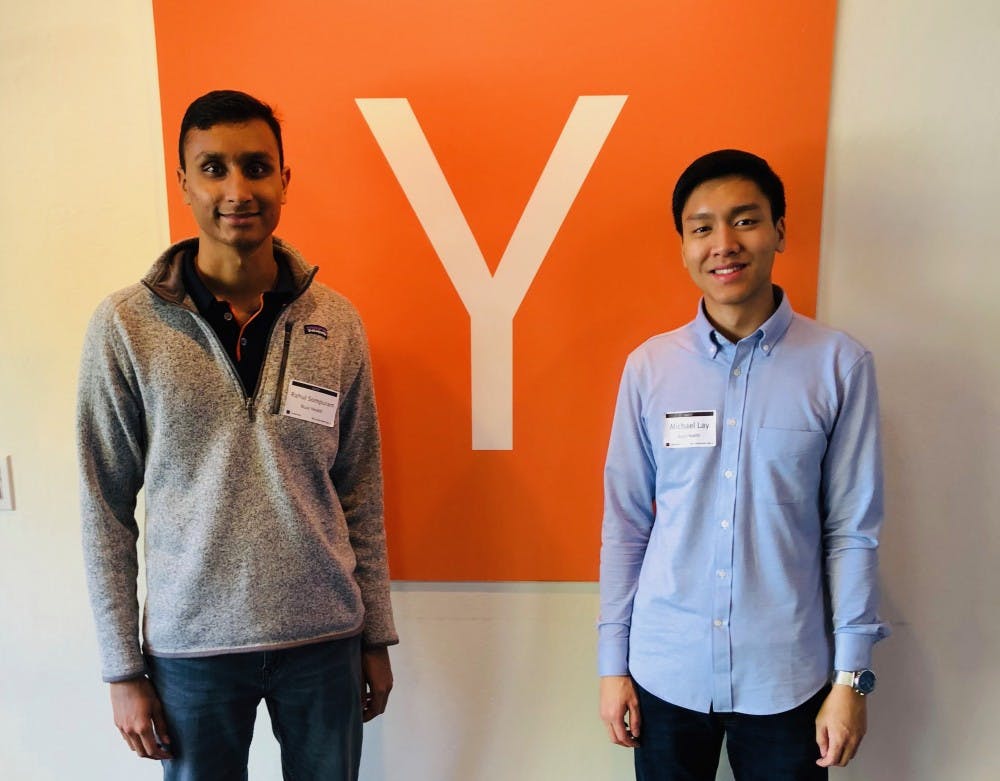Imagine being back in your senior year of high school, ready to leave and start a brand new chapter of your life at college, when you receive the devastating news that you have been diagnosed with a life–threatening disease. You are faced with months or years of painful procedures, lengthy treatments, and very often social isolation. Who do you turn to? Who can you talk to that can empathize with what you are experiencing? This was the precise dilemma facing Rahul Sompuram (C’ 20) when he battled cancer prior to coming to Penn. It's also what inspired him to build a "social and emotional support app" that plans to revolutionize the pediatric patient experience.
“I came up with the idea my senior year of high school when I was unfortunately going through cancer treatment,” Rahul says. “During that time, I realized there were no great resources for young patients, especially to connect with other patients and deal with the daily social and emotional stresses. That was where the idea was born.”
This desire to help other patients inspired Rahul to create an app named Buzz Health, which connects patients with the social support and resources they need throughout some of the most challenging times of their lives.
Once Rahul started studying computer science and economics at Penn, he gained the skills to build the app and, eventually, a business. Rahul spent his sophomore summer in San Francisco, where he learned full stack development and met two important people who would help him build his idea into a company: Payton Faulkner (W’ 20) and Michael Lay, who attends business school in Canada.
“I was very intentional about the people I chose to help me work on it,” Rahul says, “I was working with them on coding projects all summer, so I really understood how I interacted with them and how we could potentially interact in the future. I was very confident that our relationships were very strong. That’s what made it so easy for us to communicate, even though Michael is in a different country.”
The company they developed began to expand at a dizzying speed. In the span of four months, they developed an app, worked with clients across the country, and pitched their product to Y Combinator, one of the world’s most powerful startup incubators and a provider of seed funding to the likes of Reddit, Dropbox, and Airbnb. Currently, the app is in beta testing with clients and has not yet launched.
Users of Buzz Health can register as either a Patient or a Supporter, which is essentially a family member or friend of a patient. Patients invite Supporters to join their “hive” (going along with the bee motif of Buzz Health), which is a network that allows Supporters to aid Patients with their daily needs under a unified platform.
“There are more features available to you as a patient, such as being able to connect with other patients like you going through similar situations because that’s a pretty big gap I found when I was going through chemo,” Rahul mentioned. “Just having an easy way to connect with someone who is in the same hospital as you, going through a similar illness, can help you have deeper connections.”
Buzz Health is also looking to create partnerships with different organizations that utilize its digital marketplace to provide patients and supporters with useful products and services, such as ride sharing and get–well presents. While in California, Rahul and Michael also visited hospitals to gather feedback from not only patients but also nurses, doctors, and hospital administrators who interacted with the patients.
“Working with clients—that’s a big, new experience for me. Reaching out to them, pitching right in front of them—these Boards of Directors at hospitals—it’s daunting at first, being a college student and having never started anything of your own before. Those are things we had to push ourselves to do.”
Rahul, Michael, and Payton are all still college students trying to balance running this company with doing their coursework. While that can make things challenging, their belief in the company’s mission and its ability to impact patients continues to drive them.
“Once you’re diagnosed with something, it sticks with you for life,” Rahul says. “Even though I am three years in remission, there are after–effects from the chemo that I have to deal with, so there are different resources I’m looking for in a different period of my life. We want to be there for patients in every stage, addressing the needs that they have.”
This article was updated Feb. 26 at 1:30 a.m. to reflect that Buzz Health is still in beta testing and to include the "social and emotional support" functions of the app.







